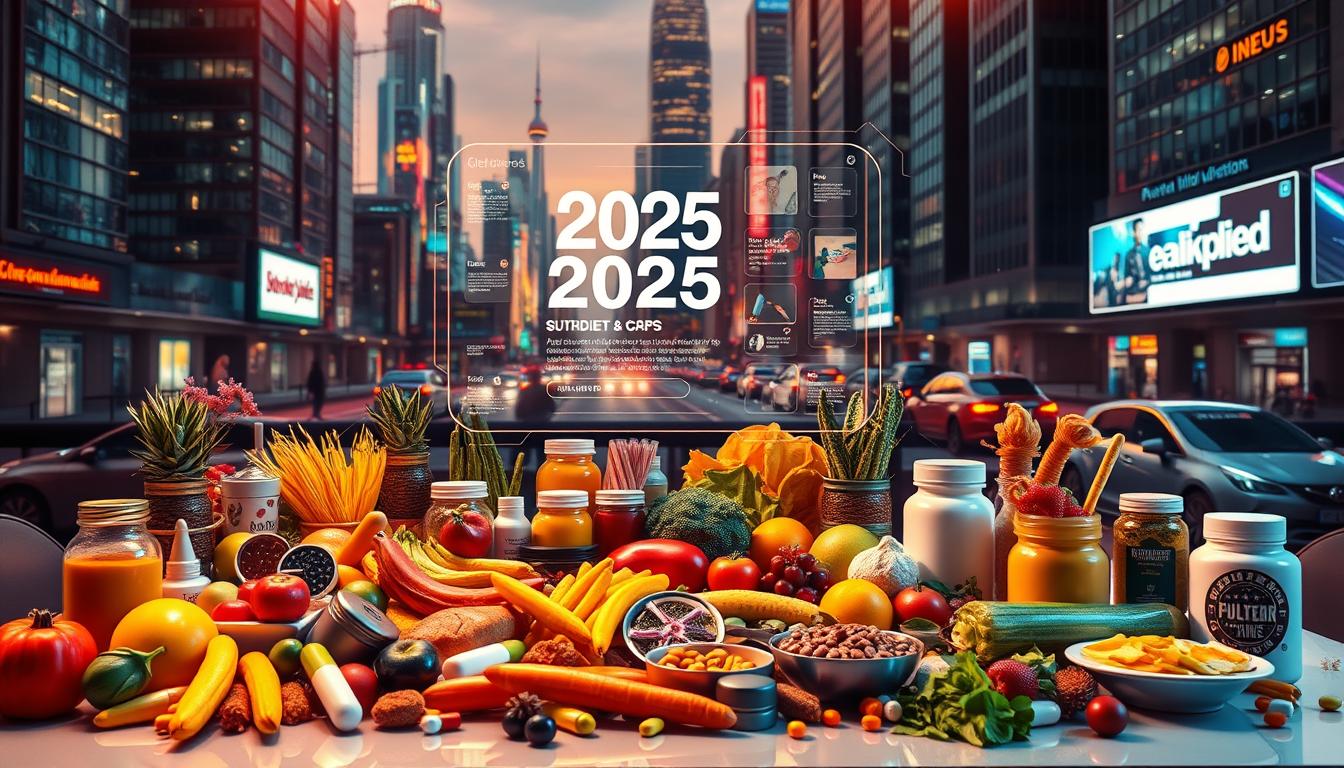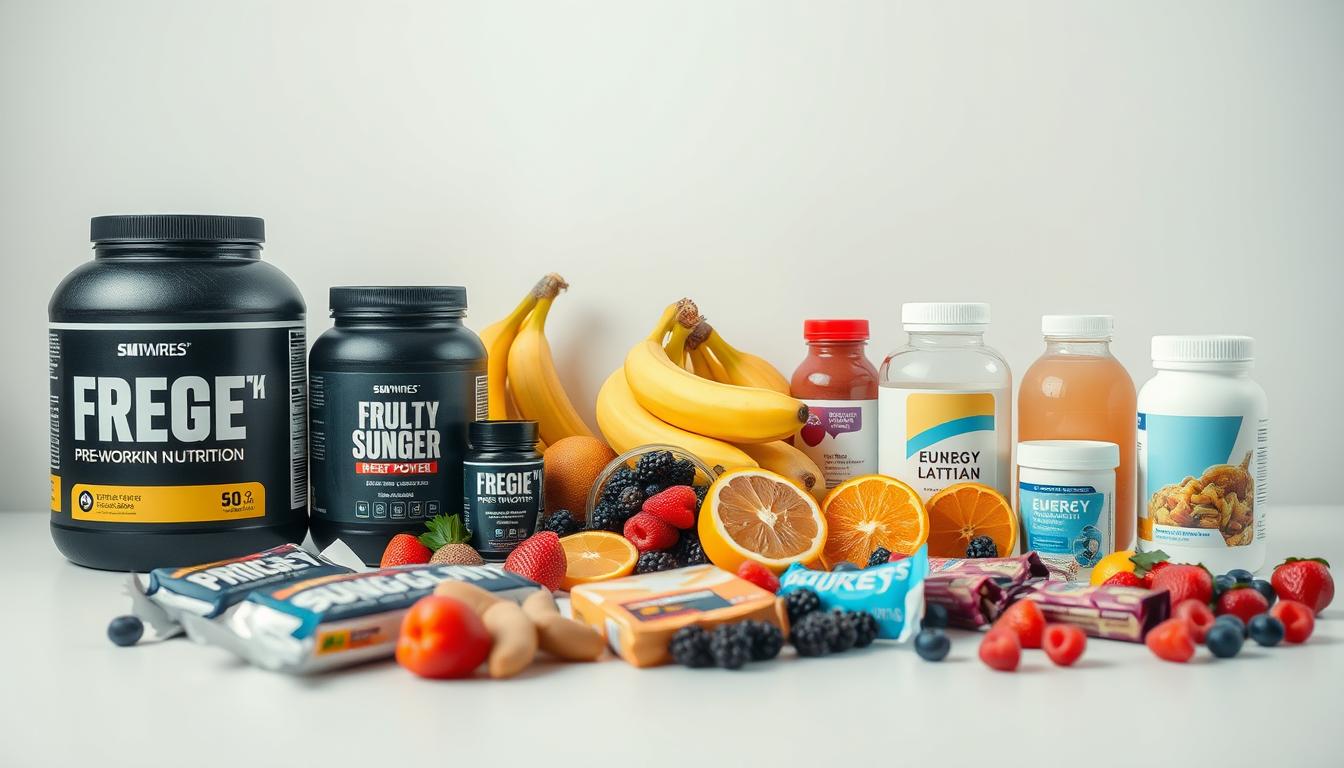Are you ready to jump on the latest diet bandwagon that’s sweeping the nation?
As we explore the new weight loss trends of 2025, it’s key to know what’s real and what’s just a trend. With so many diets popping up, it’s hard to tell what’s good for you and what’s just a flash in the pan.
When looking at the world of nutrition and wellness, it’s important to be careful. This article will look at the top diets of 2025. We’ll help you make smart choices for your health.
Key Takeaways
- Understanding the emerging diet trends of 2025
- Learning how to critically evaluate new diets
- Discovering the potential benefits and risks of the latest weight loss strategies
- Gaining insights into making informed decisions about your nutrition and wellness
- Exploring the importance of a balanced approach to health and weight loss
The Evolution of Diet Culture: What to Expect in 2025
As we enter 2025, dieting is changing fast. This is due to new societal norms, cultural shifts, and scientific discoveries. You’ll see a big change in diet trends, moving towards personalized and eco-friendly eating.
How Diet Trends Have Changed Over the Decades
Diet trends have changed a lot over the years. Old diets were strict and focused on quick weight loss. But now, thanks to better nutrition science, diets focus on long-term health and well-being.

Why Diet Trends Continue to Captivate the Public
Diet trends keep grabbing our attention, even though they change often. Dr. Janet Polivy, a famous psychologist, said,
“The dieting industry thrives on people’s dissatisfaction with their bodies and their desire for a quick fix.”
This desire for a quick fix, along with new research and products, keeps the diet world exciting. It introduces newpopular diet trendslike those expected in 2025.
The promise of new upcoming diet fads 2025 is tempting for those wanting a healthier life. It’s key to keep up with these trends to shape the diet culture of the future.
Understanding the 2025 Hottest Diet Trends and Why You Should Be Skeptical
The year 2025 has brought new diet trends that mix science and marketing. It’s key to know what drives their popularity as you explore cutting-edge diets 2025.
The Science of Trend Creation in the Diet Industry
The diet industry is huge, with billions spent on new ideas. Trends blend research with marketing tricks. It’s important to tell real science from fake marketing. For example, personalized nutrition plans based on genes are popular, but their science is not always solid.

The Psychology Behind Diet Trend Adoption
People follow diet trends for many reasons. They want quick fixes, are swayed by social media, and seek community. Knowing these reasons can help you choose better diets.
How Marketing Shapes Our Perception of Diets
Marketing greatly influences how we see diet trends. Ads often claim “scientific proof” and “new breakthroughs.” But, it’s vital to check the real science behind these claims. When looking at top dietary trends 2025, question the sources and motives.
Being aware of these points helps you see diet trends clearly. This way, you can spot fads and find diets that really work.
AI-Guided Personalized Nutrition Plans
In 2025, AI-guided nutrition is a revolutionary nutrition trend. It uses artificial intelligence to make diet plans that fit your needs, health goals, and lifestyle.
How AI Diet Technology Actually Works
AI diet tech analyzes lots of data, like what you eat, your health, and what you like. It uses smart algorithms to make a diet plan just for you.
The Claims vs. The Scientific Reality
AI nutrition plans say they offer personalized and effective diets. But, scientists are still studying if it really works. Some studies show AI can help, but more research is needed.
Steps to Evaluate AI Nutrition Programs
To check out AI nutrition programs, follow these steps:
- Learn about the algorithm used
- Look at the science behind it
- Check out what other users say
Questions to Ask Before Investing
Before trying an AI nutrition program, ask a few questions. Find out about the team’s qualifications, the data they used, and how much support you’ll get.
Red Flags in Marketing Materials
Watch out for ads that promise too much, don’t explain how they work, or have too many glowing reviews. These might be signs of trouble.
Chronobiotic Eating: Timing Your Meals with Circadian Rhythms
Chronobiotic eating is a new diet trend that focuses on when you eat, not just what. It’s based on our body’s natural clock. This trend is big in 2025.
The Science Behind Chronobiotic Eating
Our bodies have an internal clock that controls things like hunger and metabolism. Eating when our circadian rhythms say is good for our health.
Potential Benefits and Limitations
Eating at the right time can help with weight and digestion. But, it’s hard to stick to and might not work for everyone.
How to Test This Approach Safely
To try chronobiotic eating safely, start small. Adjust your meal times to match your natural rhythm. Here’s a tip:
- Eat your first meal after waking up, within an hour.
- Have your largest meal at lunchtime.
- Avoid eating at least 2-3 hours before bedtime.
Sample Timing Schedule to Consider
Try this schedule: Breakfast at 7 am, Lunch at 12 pm, and Dinner by 6 pm. Adjust it to fit your day.
Who Should Avoid This Trend
People with eating disorders, pregnant women, and those with diabetes should talk to a doctor first. It’s not safe for everyone.
Microbiome-Targeted Diets and Personalized Gut Health
In 2025, a new diet trend is getting a lot of attention. It’s called microbiome-targeted diets. These diets tailor your nutrition to your unique gut microbiome.
Understanding Gut Microbiome Testing Methods
Gut microbiome testing looks at the DNA of gut microorganisms. It’s done through stool tests that find different bacteria. Companies say this can lead to personalized diets for better health.
Claims vs. Current Scientific Evidence
The idea is interesting, but the science is still out. Some research shows these diets might help, but more studies are needed.
“The gut microbiome is complex,” says Dr. Jane Smith, a gut health expert. “Testing gives insights, but interpreting them is tricky.”
How to Approach Gut Health Responsibly
Be careful of diets that promise too much. Here’s how to be smart:
- Always talk to a doctor before trying a new diet.
- Watch out for companies making big claims without proof.
Questions to Ask Testing Companies
When thinking about gut microbiome tests, ask these questions:
- How accurate are your tests?
- How do you interpret the results?
- What kind of support do you offer?
Evidence-Based Gut Health Practices
For good gut health, eat a balanced diet with lots of fiber. Drink plenty of water and manage stress. Eating fermented foods like yogurt and sauerkraut is also good.
By being careful and informed about microbiome diets, you can make choices that help your health.
Longevity-Focused Nutritional Approaches
More people want to live longer and healthier lives. Nutritional approaches aimed at longevity are getting more attention. It’s key to know the science behind these diets.
Popular Longevity Diet Protocols for 2025
Several diets are popular for their longevity benefits. The Okinawan diet emphasizes plant-based foods and seafood. Caloric restriction diets aim to cut calories without losing nutrients.
What Longevity Research Actually Shows
Studies show that some diets can lead to a longer, healthier life. Eating lots of fruits, veggies, and whole grains can lower disease risks.
Practical Ways to Incorporate Proven Elements
To add longevity diet elements to your life, eat whole, nutrient-rich foods. Also, cut down on processed foods.
Potential Risks for Specific Populations
Some groups, like the elderly or those with health issues, should be careful with these diets. Always talk to a doctor before changing your diet.
Sustainable vs. Unsustainable Practices
| Dietary Approach | Sustainability | Potential Risks |
|---|---|---|
| Caloric Restriction | Moderately Sustainable | Nutritional deficiencies if not planned properly |
| Okinawan Diet | Highly Sustainable | Potential for high mercury intake from excessive seafood consumption |
Neuro-Nutrition: Diets Claiming to Enhance Brain Function
Neuro-nutrition is a new field that looks into how diets can boost brain function. As we look at the 2025 hottest diet trends, it’s key to know the science behind neuro-nutrition.
Common Claims About Brain-Boosting Foods
Many diets say certain foods can make your brain work better. They focus on foods with omega-3 fatty acids, antioxidants, and other nutrients good for the brain.
A study found that eating foods rich in omega-3 fatty acids can help older adults think clearer.
“The consumption of omega-3 fatty acids has been linked to a reduced risk of cognitive decline.”
The Current State of Neuroscience Research
Science shows that diet is key to brain health. Some nutrients can help our brains work better and might even prevent diseases like Alzheimer’s.
| Nutrient | Food Sources | Potential Brain Benefit |
|---|---|---|
| Omega-3 Fatty Acids | Salmon, Walnuts | Improved Cognitive Function |
| Antioxidants | Berries, Leafy Greens | Reduced Oxidative Stress |
| B Vitamins | Whole Grains, Eggs | Enhanced Neurotransmitter Function |
Evidence-Based Brain Health Nutrition
For brain health, eating whole foods is best. A diet full of different, nutrient-rich foods can help keep your brain sharp.
Supplements vs. Whole Foods Approach
Supplements can help fill nutritional gaps. But, whole foods offer a mix of nutrients and compounds that are better for your health.
When to Consult a Healthcare Provider
If you’re thinking about changing your diet or adding supplements for brain health, talk to a healthcare provider. They can help you make sure you’re making the right choices.
Climate-Conscious Eating: Environmental Impact Diets
Climate-conscious eating is becoming a big trend in 2025. It focuses on the environmental impact of what we eat. As people learn more about how food affects the planet, they’re choosing diets that are better for the earth.
The Rise of Planet-Focused Nutrition
More people are worried about climate change, deforestation, and water pollution. They want diets that are good for their health and the planet’s health too.
Legitimate Benefits vs. Corporate Greenwashing
Some companies really care about the environment, but others just pretend. It’s important to know the difference between real eco-friendly efforts and just marketing tricks.
Practical Steps for Truly Sustainable Eating
To eat more sustainably, try these steps:
- Choose locally sourced and seasonal produce
- Reduce food waste by planning meals and using up leftovers
- Opt for plant-based diets or reduce meat consumption
Local vs. Global Food Considerations
Think about the local and global effects of your diet. Supporting local farmers and cutting down on transportation can help. But, some foods have big environmental impacts when they’re produced and shipped far away.
Balancing Environmental and Nutritional Needs
A sustainable diet must meet both environmental and nutritional needs. For example, plant-based diets are often better for the planet but need careful planning to get enough nutrients like vitamin B12 and omega-3s.
| Dietary Choice | Environmental Impact | Nutritional Considerations |
|---|---|---|
| Plant-based diet | Lower greenhouse gas emissions, water usage | Potential for lower vitamin B12, iron, and omega-3 levels |
| Locally sourced diet | Reduced transportation emissions, supports local economy | May offer fresher produce, potentially higher nutrient content |
| Reducing food waste | Less energy for production, disposal | Encourages mindful eating, reduces unnecessary consumption |
How to Critically Evaluate Any Diet Trend
It’s important to carefully look at diet trends to make smart health choices. With new diets popping up, knowing how to check if they’re good is key. This helps you steer clear of diets that might harm you or don’t work well.
Step 1: Identify and Verify the Scientific Claims
First, check the science behind a diet trend. Look into the research that shows it works and is safe.
Finding Credible Research Sources
To find solid research, look for studies in top, peer-reviewed journals. Watch out for studies backed by groups that might benefit from the diet’s success.
Understanding Study Limitations
Every study has its own set of limitations. Know the study’s size, length, and who was in it. This helps you see if it applies to you.
Step 2: Check the Research Quality and Funding
Quality research is key. It gives you trustworthy info on a diet’s benefits.
Step 3: Consider Financial Motivations Behind the Trend
Many diets are pushed by money. Know who’s making money off the diet and how it might sway the info given to you.
Step 4: Assess Practical Sustainability for Your Lifestyle
A diet might be good in theory but hard to stick to in real life. Think if the diet fits your daily life and likes.
Step 5: Consult Qualified Health Professionals
Always talk to health experts before trying a new diet. They can give advice that fits your health and needs.
By following these steps, you can pick diet trends that really work for you. This ensures they match your health goals and lifestyle.
Warning Signs of Potentially Harmful Diet Trends
Exploring the world of nutrition trends in 2025 can be tricky. The diet industry is full of new crazes, promising quick fixes. But not all diets are safe, and some can harm your health.
Extreme Restriction Red Flags
Diets that cut out whole food groups can be risky. For example, diets that ban carbs or fats might cause nutrient gaps. Be careful of diets that promise fast weight loss or say some foods are “toxic.”
Recognizing Pseudoscientific Language and Claims
Watch out for diets using fake science talk. “Revolutionary breakthroughs” or “scientifically proven” might sound good but lack real evidence. Make sure claims are supported by solid science.
When “Success Stories” Should Raise Concern
Testimonials can be inspiring but also misleading. Be cautious of diets that focus on personal stories over scientific facts.
“The key to a healthy diet is not in the latest fad but in balanced, sustainable eating habits.”
Identifying Potential Health Risks
It’s key to spot both physical and mental warning signs of bad diets.
Physical Warning Signs to Watch For
- Rapid weight loss or gain
- Fatigue or weakness
- Dizziness or fainting
Psychological Warning Signs to Monitor
- Obsessive behavior around food
- Anxiety or depression
- Social withdrawal due to dietary restrictions
Knowing these warning signs helps you choose safer diets. Always talk to a doctor before trying a new diet.
Building a Personalized, Evidence-Based Approach to Nutrition
As 2025 comes, it’s key to have a personalized nutrition plan. With many diets out there, it’s easy to get confused. But, by focusing on what you need and getting help from experts, you can make a diet that really works for you.
How to Identify Your Unique Nutritional Needs
First, figure out what you need nutritionally. Think about your age, health, lifestyle, and what you like to eat.
- Look at how you eat now and what health goals you have.
- Get advice from a doctor or a dietitian.
- Use tests to find out if you’re missing any nutrients.
Working with Qualified Nutrition Professionals
A good nutrition expert can tailor advice just for you. They help you understand nutrition and diet trends. Make sure they are certified and focus on science-backed advice.
Creating Sustainable Eating Habits That Last
For a diet to work, it must be something you can keep up with. Aim for changes you can make and keep, not quick fixes. Start small and be patient with your progress.
Tracking Progress Beyond Weight
Weight is important, but it’s not everything. Watch your energy, how you feel, and health markers too. This gives a fuller picture of your health.
Adjusting Your Approach Based on Results
Be ready to change your diet if needed. This might mean small tweaks, talking to your doctor, or trying new recipes. Keep your diet interesting and doable.
By taking a personalized and science-backed approach to nutrition, you can handle 2025’s diet trends with confidence. Make choices that support your health for the long haul.
Conclusion: Navigating Diet Trends with Informed Skepticism
Exploring the 2025 hottest diet trends requires staying informed. You’ve learned about trends like AI-guided nutrition, chronobiotic eating, and diets focused on the microbiome. These trends might seem promising, but it’s key to be cautious.
Using the critical thinking tips from this article, you can judge diet trends better. Look for scientific backing, check the quality of research, and consider who’s funding it. Also, think about the practicality of these diets.
Focus on creating a personalized, science-backed nutrition plan. Know your nutritional needs, work with experts, and adopt lasting eating habits. This way, you’ll be ready to handle the changing diet trends and make smart choices for your health.


